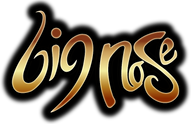New Brains, Old Mistakes: Humanity’s Amnesia
By D.A. Di Muro – bignose.com.au
Cities are buckling under their own weight. Infrastructure is neglected and crumbling. Even in Australia—where we pride ourselves on working smart—it’s clear we’re running on borrowed time. Beneath the cracks in the old sidewalk pavement lies something deeper: a collapse of true purpose, replaced with compulsive consumerism.
The institutions we once trusted to build the future—education, government, media—now play a different game. A game where winning at all costs matters more than real purpose. Where short-term gains eclipse long-term stability. Where competition is strength, and cooperation is weakness.
This strength mentality has seeped into families and communities. We are witnessing a surge in violence, authoritarian parenting models, and the perfunctory kindness that exists only for social likes—not genuine compassion.
🎓 1. Education: Programming Minds for Policy, Not Growth
Globally, there are 264 million tertiary students enrolled today—more than double the 2000 figure—yet we’re producing fewer thinkers and visionaries (UNESCO, 2023). Australia, too, boasts one of the highest rates of tertiary qualification—69% of adults—but has pushed critical disciplines to the margins.
Governments distort education through funding incentives: STEM and policy-aligned degrees are prioritised. Humanities, arts, philosophy—all vital for moral grounding—fade under funding cuts. We’re training technicians, not citizens. The result? A critical-thinking deficit that enables manipulation by media narratives and political theatre.
We aren’t cultivating philosophers or visionaries—we’re programming the next generation of compliant workers.
Without a foundation in ethics, history, philosophy, psychology, music, and art, technical education becomes dangerous. It trains hands without grounding hearts. We produce builders who have no blueprint for the kind of world they’re meant to construct.
⚙️ 2. Politics: A System Trapped in Team Sports
This distortion isn't limited to education—it infects government.
Politics today is not “policy by the people.” It’s tribal loyalty. Elections have become spectacles. Voters are spectators. Media replaces civic discussion. Politicians behave like influencers, not stewards of collective will.
But the Prime Minister, the President—they should not represent a party. They should administer the people’s will. Full stop.
Imagine leaders appointed through merit-based public selection, not marketing campaigns. Roles should be functional, assessed like any other senior position—with transparency, criteria, and performance-based reviews.
Leadership is not about winning.
Leadership is responsibility—an obligation to translate consensus into law and report on the outcomes.
🔥 3. The Myth of Competition
From classrooms to boardrooms to parliaments, we've been sold a myth:
Competition is always good.
But when everything becomes a race, we sacrifice cooperation, the bedrock of civilisation. Students hustle for grades, workers scramble to stay ahead of automation, and politicians clash for narrative control. The result? Fractured communities and fragile institutions.
We are not rivals. We are meant to be stewards of a shared world.
“You can’t build a future by defeating each other. You build it by remembering what you’re here to do.”
👨🦳 4. The Discarding of Wisdom
In our quest for novelty and efficiency, we’ve discarded our elders. Knowledge built over decades is labeled obsolete, even when it’s the only thing preventing disaster.
OECD data shows that over 50% of human capital output comes from experienced labor, not just formal education (OECD Human Capital Project). Yet we continue to ignore institutional memory in favour of “fresh perspectives” that often repeat old mistakes.
❤️ 5. Humanity’s Saving Grace: Kindness & Connection
Yet even in this climate, something beautiful remains: human generosity.
Random acts of kindness have measurable impacts on well-being, identity, and social health:
-
Kindness releases oxytocin, lowers stress, and strengthens community trust (Random Acts of Kindness Foundation).
-
Generous behaviour has a ripple effect—those who receive kindness are more likely to pay it forward (StudyFinds.org).
-
Studies show a strong link between identity formation and altruistic behaviour—we become who we are through how we treat others.
In a world of noise and spectacle, small acts of real kindness are radical. They reconnect us to what’s human, what’s shared, and what matters.
🌍 6. The Loneliness Epidemic
But those connections are disappearing.
The World Health Organization (WHO) now recognises loneliness as a global public health threat, responsible for nearly 1 million deaths annually, and comparable in mortality risk to smoking 15 cigarettes a day (WHO Commission on Social Connection, 2023).
Key findings:
-
1 in 4 older adults reports feeling socially isolated.
-
1 in 3 adolescents and young adults experience consistent loneliness.
-
Loneliness increases risk of dementia by 50%, heart disease by 30%, and stroke by 32%.
Social fabric is disintegrating—and we’re only beginning to understand the cost.
✅ Final Thought
We’ve built the most interconnected world in human history—and yet, we’re lonelier, more fragmented, and more anxious than ever.
We are not progressing.
We are looping.
We churn out degrees, but neglect moral formation.
We glorify youth, but ignore wisdom.
We compete relentlessly, but forget how to cooperate.
The foundation of a functioning society is not GDP. It’s meaning. It’s values. It’s trust.
Until moral and ethical development through classical education is made universal, we are not educating. We are engineering compliance.
Before we teach coding, we must teach character.
Before we train builders, we must ask: What are they building?
Before we prepare for the future, we must reconcile with the past.
Let us end the loop. Let us rebuild from the soul up.
Big Nose Knows.

